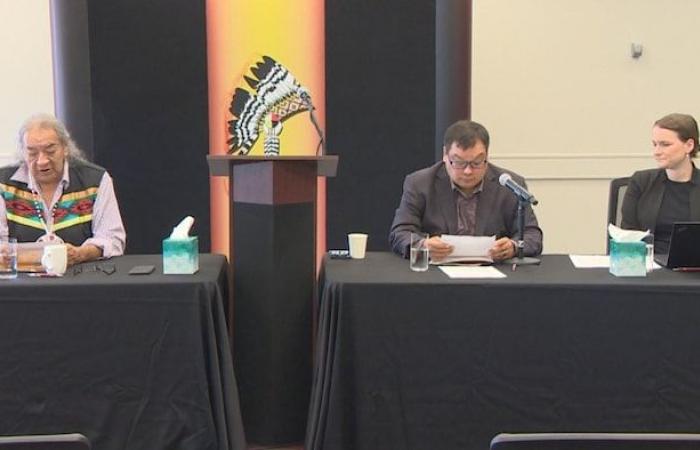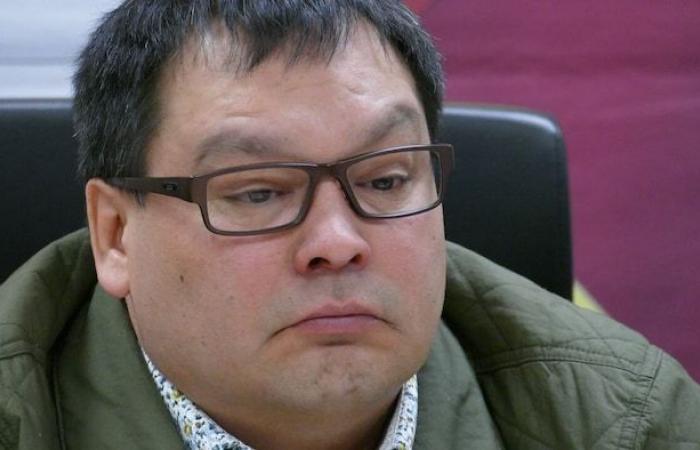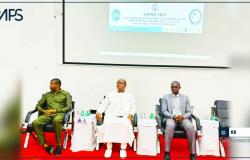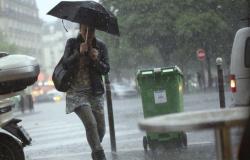That’s the defense the federal government is expected to present this week in Federal Court in Ottawa, as it opposes a national class action launched in 2022 by a remote First Nation in northern Manitoba.
Shamattawa First Nation, which has been under a boil water advisory since 2018, and its chief Jordna Hill are suing the government on behalf of all First Nations people across the country whose community has been under a boil water advisory since 2018. subject to a boil water advisory in effect on or after June 20, 2020.
Fifty-nine First Nations have chosen to participate in this legal action, while individual community members would be automatically included if they meet the required criteria. The case therefore picks up where the previous class actions, settled out of court for 8 billion dollars (new window)had stopped.
The plaintiffs argue that First Nations have a fundamental right to clean water that Canada has violated. They describe the conditions their communities face as urgent human rights crisis
.
Canada’s lawyers will have the opportunity to respond this Tuesday. As a defense argument, Canada asserts that government support for the provision of drinking water to First Nations is a discretionary political decision, calling it question of good governance rather of legal obligation
.
Canada has no legal obligation or duty to operate and maintain the plaintiffs’ water systems
indicates the defense.
From left: Dennis White Bird of the Assembly of Manitoba Chiefs, Jordna Hill, Chief of Shamattawa First Nation, and McCarthy Tétrault LLP lawyer Alana Robert at a news conference in Winnipeg on September 4.
Photo : (Radio-Canada)
Alana Robert, the lawyer for Shamattawa First Nation and its chief, told CBC Indigenous they want to change that idea.
What First Nations leaders have clearly expressed throughout this litigation is the disappointment and frustration of having to fight once again for such a fundamental right.
said Alana Robert, partner at McCarthy Tétrault LLP.
Canada’s lawyers therefore want to obtain the dismissal of this request for summary judgment from the First Nation on the question of Canada’s legal obligations.
The right to drinking water, not a distinct indigenous right?
Canada’s lawyers should argue, among other things, that the right to drinking water is not specifically indigenous
whilethere is no positive right to public financing
according to their written argument.
However, the plaintiffs point to the numerous public statements by Liberal ministers who seem to recognize the responsibility of the federal government in the water crisis facing certain First Nations.
Lifting all long-term boil water advisories in communities by 2021 was one of Prime Minister Justin Trudeau’s promises in 2015. There were 105 such advisories in November 2015. September 28, 2024, 33 advisories were still in effect, according to government data (new window).
Furthermore, during a press conference held in April 2022, the Minister of Indigenous Services, Patty Hajdu, declared that Canada takes note of the role that the government played in the lack of access of First Nations to drinking water
.
But Canada now maintains that this comment – and others like it – was made in a particular context
that it should not be taken out of context and does not constitute legal advice.
MP Niki Ahston asked Minister Patty Hajdu to answer her questions regarding drinking water and asked when the government would keep its promises on the matter.
Photo: The Canadian Press / Justin Tang
NDP MP Niki Ashton, whose riding includes Shamattawa, says Canada’s arguments are shocking and hypocritical.
I think any Canadian would be shocked that in a country as wealthy as Canada, a country that is considered a leader in human rights on the world stage, we are telling First Nations that they do not have the right to drinking water
Niki Ashton said in an interview.
We really see the dark side of Canada and, I would say, the hypocrisy of the Liberals.
When Niki Ashton demanded answers on this matter during question period last week, Minister Hajdu praised the progress made by the government since 2015.
We have lifted more than 145 long-term boil water advisories and avoided more than 200. We will continue this hard work
she said.
Pointing the finger at First Nations
MP Niki Ashton told CBC Indigenous it was particularly heartbreaking
to hear how the Shamattawa First Nation was treated in this matter.
In a September 15 letter to the MP, Chief Jordna Hill described the cross-examinations by government lawyers as long and painful
.
I have been asked questions that seek to blame me and my band council for our long-term views on drinking water
wrote Jordna Hill.
Rather than looking in the mirror, Canada is pointing the finger at First Nations for the entirely predictable consequences of its own actions.
Lawyer Michael Rosenberg, who opened the hearing on Monday for the plaintiffs, said Canada was blaming the victims.
Canada’s lawyers cross-examined the plaintiffs in the smallest details
presenting them with stacks of technical documents and financial statements on short notice, attorney Michael Rosenberg told Judge Paul Favel.
This did not seem like a fair way to pursue a case against a group of plaintiffs who are vulnerable and have experienced a drinking water advisory.
said Mr. Rosenberg.
Canada then attached an 11-page annex to its written argument, presenting a list of alleged examples of inconsistencies in the complainants’ evidence.
It is regrettable that Canada has chosen to defend this matter by implicating the leaders of the First Nations
continued Mr. Rosenberg.
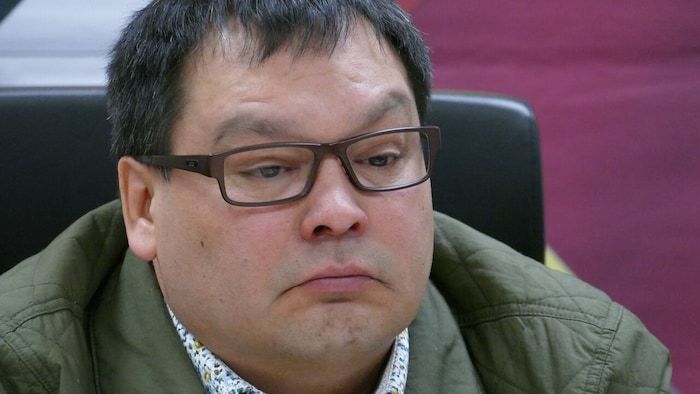
Jordna Hill is the chief of Shamattawa First Nation, a small community of around 1,300 people in northern Manitoba.
Photo : Radio-Canada / Jeff Stapleton
Chief Jordna Hill was not available to discuss the case. He had planned to go to Ottawa, but he was unable to do so due to the death of his son, we learned in court. The hearing began Monday with a minute of silence.
Debates on this particular motion will conclude on Wednesday.
Based on information from CBC’s Brett Forester Indigenous

